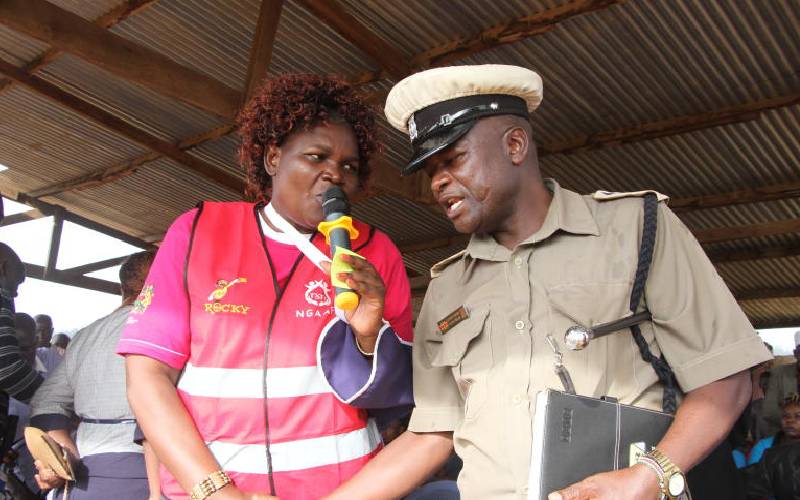×
The Standard e-Paper
Join Thousands Daily

Migori Woman Representative Pamela Odhiambo with Base commander Aggrey Ukiru during the launch of Boda Boda Riders and Taxi Drivers Training at Migori Primary School on March 30, 2019. [Caleb Kingwara]
Armed gangs have infiltrated boda boda trade and are killing, maiming, kidnapping, raping and robbing innocent people, a new Government report reveals.